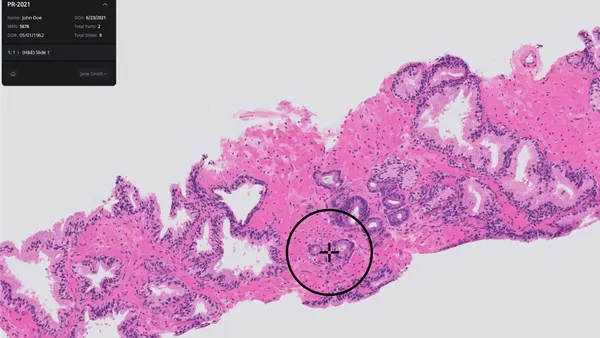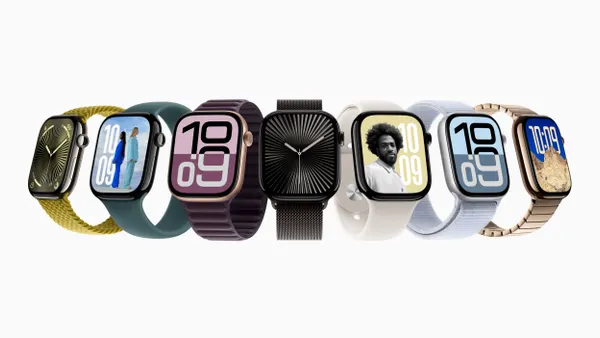Dive Brief:
-
FDA has granted 510(k) clearance to Sectra’s digital pathology module, enabling the use of images rather than glass slides in primary diagnostics. Previously, the product was only used in the U.S. for research and tumor boards.
-
In a statement posted Wednesday, Sectra said the clearance positions healthcare providers to use its module in conjunction with Leica Biosystems’ scanner AT2 DX, which was cleared by the agency last May.
-
The latest FDA clearance will contribute to intensification of competition for the U.S. digital pathology market, which Philips initially monopolized with its IntelliSite Pathology Solution but other medtechs like Roche are looking to challenge.
Dive Insight:
The Philips IntelliSite Pathology Solution came to market in the U.S. in 2017. Leica brought a rival system, Aperio AT2 DX, to market last year and went on to team up with Sectra to add to its capabilities in December. That collaboration between Leica and Sectra has now borne fruit.
Using technologies brought to market by Leica and Sectra, pathologists can access digital versions of current and historical images, plus related data, for review. Advocates of digital pathology argue that freeing people from the need to use physical slides will make it easier to get second opinions and input from specialists, wherever the patient is tested.
Sectra contends digital pathology is particularly well suited to the needs of complex cancer cases, which benefit from the timely input of radiologists, pathologists, and other medical specialists. The ability to review images from anywhere is critical during the coronavirus pandemic as social distancing is being enforced, as Sectra president Mikael Anden noted in a statement.
“Our solution makes it possible for pathologists across the country to continue their important work from home without the need for a microscope,” Anden said. “We look forward to providing uninterrupted pathology reading in these challenging times.”
Sectra is a Swedish company with a market cap of around $1.4 billion, while Leica has been part of Danaher since a $550 million acquisition back in 2005. Leica bought its way into the digital pathology space through the 2012 takeover of Aperio.
For now, the pair are the primary challengers to Philips’ grip on the U.S. digital pathology market, which is segmented into scanners, software, communication systems, and storage systems. That monopoly is likely to change in the future, with Roche working toward a filing to sell its Ventana DP 200 slide scanner in the U.S.
In a note published last year, analysts at Fitch Solutions predicted “Roche's heritage in the wider in vitro diagnostic market will make it a tough competitor when it does gain FDA approval."
Philips announced on Thursday the FDA has granted a waiver for the use of consumer monitors at home with the company's IntelliSite Pathology Solution during the COVID-19 emergency. The agency is temporarily exempting restrictions on remote use of the technology so pathologists can access whole slide images of patient tissue from home and make diagnoses of histology cases.












